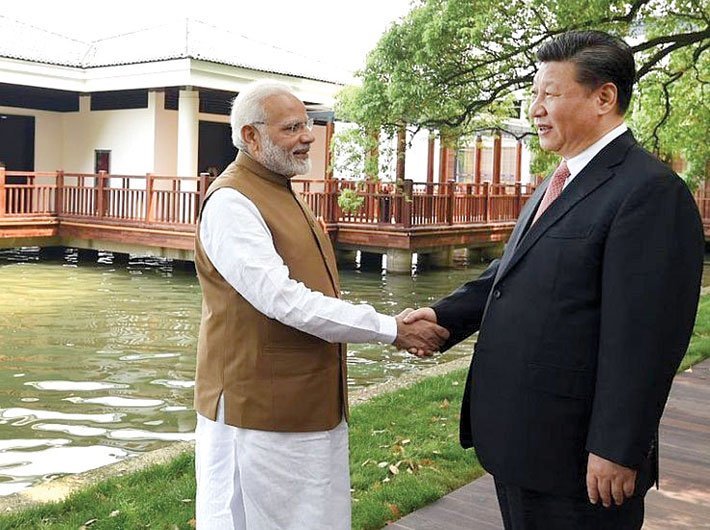Barely four days are left for Chinese president Xi Jinping to land in Mamallapuram (or Mahabalipuram) for an informal summit with prime minister Narendra Modi. While official confirmation is still awaited at the time of writing, the two leaders are expected to meet in this Tamil Nadu town known for its temples and pagodas on October 11-12.
Setting a positive tone for the yet-to-be confirmed meet, Chinese ambassador to India Sun Weidong on Monday tweeted:
“Under the strategic guidance of our leaders, China-India ties made steady progress in recent past. Looking ahead, we should further unleash the positive effect of Wuhan informal summit, transmit leaders' consensus to all level & gather positive energy for stronger bilateral ties.”
Unlike bilateral summits where the agenda of talks is pre-decided, the forthcoming meet, seen as the continuation of the informal summit in Wuhan, there will be no structured talks between the two leaders. Since India and China are seized with the issues of bilateral and international nature, the two sides are expected to exchange notes on them, especially when they are attempting to remove the lingering trust deficit in their bilateral engagement.
The previous informal meet, in the central Chinese city of Wuhan in April last year, is remembered for the warmth and bonhomie between the two leaders. At Mamallapuram, they are expected to consolidated that spirit.
Also read: Modi-Jinping meet: The art of personal diplomacy
Crucially, this is the first meeting of its kind since India’s August 5 move to change the status of Jammu and Kashmir.
Last week, Pakistani daily, The Express Tribune, quoted China’s ambassador to Pakistan Yao Jing as saying that China would stand by Pakistan for the resolution of the Kashmir dispute. “We are also working for Kashmiris to help them get their fundamental rights and justice. There should be a justified solution to the issue of Kashmir and China will stand by Pakistan for regional peace and stability,” the Chinese ambassador said. India has lodged a strong protest with China over the comments.
Amid this, Pakistan prime minister Imran Khan is meeting president Xi and premier Li Keqiang in Beijing on Tuesday, barely 48 hours before the expected India summit.
While this indicates China’s intention to keep India on toes, New Delhi is equally in no mood to give Beijing any space on strategic issues. India continues to maintain that China should “desist from efforts to change the status quo through the illegal so-called China Pakistan Economic Corridor in Pakistan occupied Kashmir”.
Also, India joined the US, Japan and Australia, as part of quadrilateral strategy in the Indo-Pacific region, in holding their first ministerial level meeting, on the sidelines of UN General Assembly meet on September 27 in New York. During the meet, as per the US Department of State, the four countries discussed “collective efforts to advance a free, open, and inclusive Indo-Pacific”.
The next meeting of the Quad will be held on the sidelines of East Asia summit in November. China is apprehensive of the Quad as it manifestly aims to counter Beijing’s strategic influence in the Indo-Pacific region by strengthening cooperation among the four countries on maritime security, developing quality infrastructure and regional connectivity in support of a rules-based order that promote stability, growth and economic prosperity in the region.
Earlier, the two special representatives (SRs) on the boundary question, national security advisor Ajit Doval and Chinese foreign minister and state councilor Wang Yi were scheduled to hold talks on September 9-10, but the meeting did not materialize. When MEA spokesperson Raveesh Kumar was asked about this development, he replied: “I don’t think more should be read into that.” No new dates have been announced so far for their meeting.
When Chinese vice foreign minister Luo Zhaohui was in New Delhi on October 3 to prepare the ground for the president’s visit, he reportedly raised with foreign secretary Vijay Gokhale the matter of the Indian Army’s combat exercise in Arunachal Pradesh. As per various media reports, 12,000 soldiers are participating in the ongoing military exercise, ‘Him Vijay’ being held at a height of 14,000 feet.
While these developments are likely to figure in the Modi-Xi informal summit, the Indian prime minister, as per sources, may take up with the visiting Chinese President issues related to continued protectionist practices by Beijing which have resulted in Indian pharmaceutical companies and IT sector not getting fair deal in the Chinese market. During the Wuhan summit last year, Modi had expressed concern about the trade deficit with China, which has now crossed $57 billion. China had agreed to address the matter, and it did buy rice, sugar and soybean from the Indian market, but Beijing has not shown interest in India’s pharma products.



